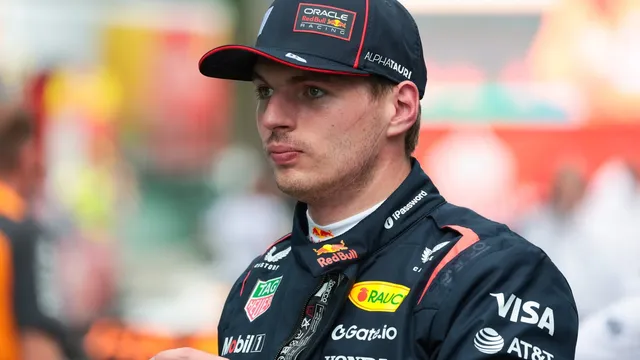
Max Verstappen faces penalty after controversial crash with George Russell
2025-06-03 10:14- During the final laps of the race, Max Verstappen collided with George Russell, leading to a significant penalty.
- The stewards imposed a 10-second penalty on Verstappen after determining his actions were dangerous.
- This incident highlights ongoing tensions in the competitive atmosphere of Formula 1 and raises questions about driver conduct.
Express your sentiment!
Insights
At the 2025 Spanish Grand Prix held at the Circuit de Catalunya in Barcelona, Max Verstappen encountered significant controversy during the final laps of the race. After a safety car restart with only a few laps remaining, Verstappen, who was battling for position, collided with George Russell. The incident took place just before lap 66, where Verstappen appeared to deliberately accelerate into Russell's car, resulting in contact that left Russell stunned and questioning Verstappen's actions. The race stewards reacted quickly, imposing a 10-second penalty on Verstappen for what they deemed an unnecessary and dangerous maneuver, dropping him from a fifth-place finish to tenth. This decision came amid rising tensions between the two drivers, already escalated by their history of on-track disputes. Meanwhile, Oscar Piastri secured the victory for McLaren, with Lando Norris coming in second and Charles Leclerc taking the final podium spot in third. Russell's performance was noteworthy as he finished in fourth, further solidifying his status as a top contender in the championship. The incident drew widespread attention, with pundits and fans reacting to the controversial nature of Verstappen’s actions. Former champion Nico Rosberg even called for Verstappen to be black-flagged. Verstappen's aggressive driving style, once celebrated for its competitiveness, has now become a focal point for criticism, especially as he nears a potential race ban due to accumulating penalty points on his superlicence. After the race, Russell expressed that Verstappen should have faced disqualification for what he felt was a deliberate crash, emphasizing the seriousness of safety in Formula 1. This incident not only affected the race standings but also raised questions about Verstappen's conduct and its implications for his reputation and future races. As the championship progresses, further tensions between drivers could undoubtedly lead to more dramatic twists, as athletes navigate both the physical and psychological challenges present in Formula 1.
Contexts
The Formula 1 penalty point system is a structured approach utilized to manage driver conduct on the track, ensuring both safety and fairness in this high-stakes motorsport. Each driver is allotted a certain number of points for specific infractions, which are accumulated over the course of the season. If a driver accrues a total of 12 penalty points within a rolling 12-month period, they face a suspension from racing in the next event. This mechanism is designed to encourage responsible driving behavior, reflecting the sport's commitment to maintaining competitive integrity and safety for all participants. The allotment of points is classified based on the severity of the offense, allowing for a distinction between minor infractions and more serious violations which may pose risks to other drivers or teams. Infractions that result in penalty points can vary from causing collisions, speeding in the pit lane, ignoring yellow flags, or other breaches of race regulations. Each incident is carefully reviewed by race officials, who assign points relative to the nature of the offense. For example, a minor collision may result in fewer points than a serious breach of conduct that endangers others. The point system provides a transparent framework whereby drivers can understand the consequences of their actions on the circuit, thereby promoting fair competition while simultaneously acting as a deterrent against reckless behavior. As the season progresses, the accumulation of penalty points becomes paramount for drivers who must balance the aggressive strategies often required in F1 racing against the potential repercussions of their actions. The system not only impacts individual races but also influences overall team strategy, as teams must consider the risk of their drivers receiving additional points and facing suspension. This strategic element underscores the necessity for teams to effectively manage their drivers' performance and conduct throughout the season. The penalty point system plays a crucial role in fostering an environment of discipline and sportsmanship within Formula 1. It is regularly reviewed and updated by the governing body, ensuring it adapts to changes in race dynamics and safety standards. Therefore, drivers must remain acutely aware of their driving and the implications of their conduct on track. This approach establishes a culture of accountability in Formula 1, emphasizing that while racing is inherently competitive, it should also uphold high standards of safety and respect among competitors.